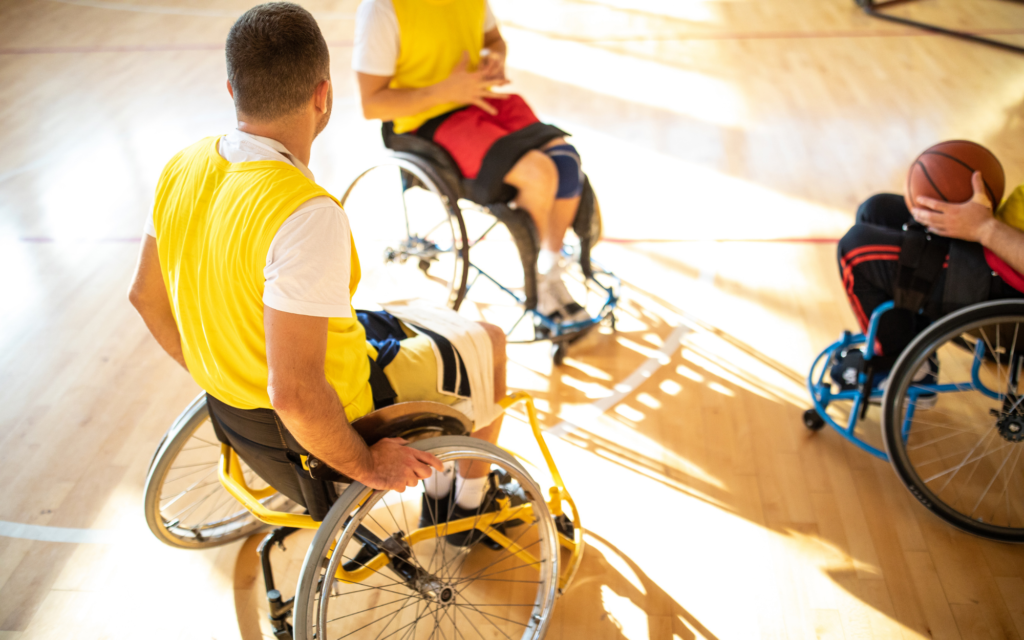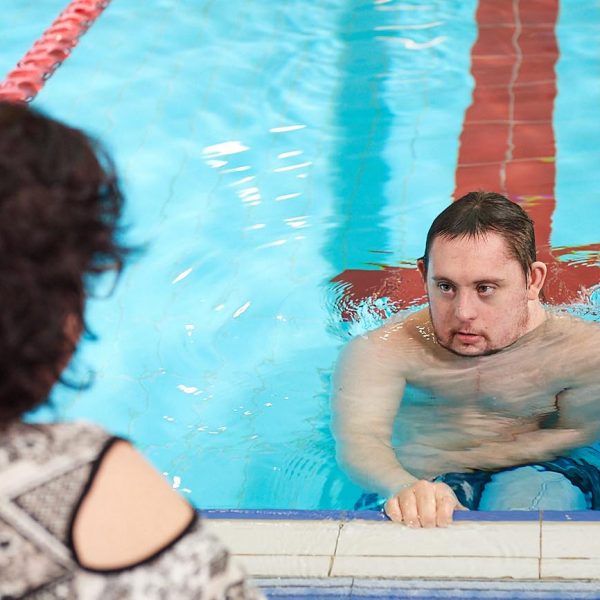Disability sports and recreation activities are increasingly becoming a powerful tool for positive change in our society and there are more options available, just like other disability services. Sports and recreation present an opportunity for all people to improve not just their physical health, but also mental well-being, providing immediate and long-term health benefits.
Sports and recreation activities help create a positive and inclusive social environment where vital social and life skills can be fostered and strengthened. These activities can help people of all abilities get out and about in the community, creating a positive outlook and well-being.
In this article, we explore how disability sports and recreation can influence the following:
- Physically Healthier & Higher Energy Levels
- Social Benefits
- Goal Setting & Confidence
- Communication, Teamwork & Leadership Skills
- Learn How to Deal with Setbacks
- A Better Night’s Sleep & De-Stressor
Physically Healthier & Higher Energy Levels
The physical health benefits of an active lifestyle are well known. Regularly participating in disability sports and recreation activities can lead to many physical improvements including:
- increased muscle strength,
- improved balance and motor skills,
- enhanced cardiovascular endurance and
- higher energy levels
For those with disabilities, an increase in physical strength and energy can lead to a greater level of independence and freedom as more daily tasks can be completed without assistance.
Social Benefits
Sport and recreation has the rare ability to transcend social, linguistic, and cultural barriers. Thanks to its universal popularity and ability to draw people of different backgrounds together, disability sports and recreation are a fantastic tool for fostering the inclusion and well-being of those of all abilities.
All across Australia, there are sport and recreation activities coordinated by people living with a disability seeking to enjoy the social benefits. Through these organised activities, community members can meet friends with similar life experiences and create a positive social network.

Goal Setting & Confidence
Sport and recreation activities primarily centre around setting, working towards, and accomplishing goals. Through goal setting, disability sports and recreation can become a tool to boost confidence and improve self-esteem.
Goal setting is an extremely effective motivation technique and when used correctly, a potentially empowering life skill. Goal setting gives an individual a sense of progression by creating an achievable, step-by-step framework to success.
When goals are successfully achieved, an enormous sense of accomplishment and pride is felt, boosting one’s self-confidence. With the knowledge of goal setting, heightened motivation and renewed confidence, goals and tasks in the workplace or other settings will become more likely to succeed.
Communication, Teamwork & Leadership Skills
In order to be successful in team-based activities, it’s necessary to know how to work well with others. The ability to communicate effectively is not just the key to success in disability sport and recreation, but also in social and workplace environments. By understanding the nuances of how to communicate and coordinate with one another, reaching a common goal becomes an attainable feat.
Team sports such as AFL, rugby, soccer and basketball are perfect for developing leadership traits and skills. When you are part of a team, whether you’re training, winning or losing, you do it together.
People involved in disability sports and recreation are naturally more inclined to adopt a “team mindset” in social situations and the workplace. A team mindset leads to strong leadership qualities over time, and these skills can then be applied in day-to-day life.
Learn How to Deal with Setbacks
No team will win 100% of the time. Dealing with a poor performance or loss, learning from your mistakes and trying again is all part of the journey. Understanding how to improve and overcome setbacks is one of the most important skills that can be gained from participating in disability sports and recreation.
A Better Night’s Sleep & De-Stressor
Everyone knows how important sleep is to our general well-being. Participating in regular disability sport and recreation can help improve quality of sleep. Exercise obviously causes a great deal of physical fatigue but can also be mentally demanding.
Sport and recreation often require a high level of concentration, critical thinking and quick decision making which can be mentally exhausting. Strenuous physical activity increases the time spent in deep sleep, the most physically restorative sleep phase.
Deep sleep helps to support cardiac health, boost immune function, and control stress and anxiety. Exercise is also an excellent natural remedy for dealing with stress. Physical activity reduces the levels of stress hormones in the body and releases endorphins, the body’s happy chemical.
Start Your Sport & Recreation Plan Today
Sport and recreation can greatly enhance the lives of people in our community living with a disability, by improving physical health and mental well-being. It is also an excellent platform to work on important life and social skills.
When it comes to finding the right disability sport and recreation activity, people in Australia are spoilt for choice. Lifeplan are a Perth NDIS Service Provider and can help you get the right supports you need, to participate in your chosen sport or recreation activity. Get in touch with Lifeplan today so we can help find the perfect activity for you.
Contact our friendly team on 9277 7223 or email enquires@lifeplan.org.au.
FAQs
What sports can people with disabilities participate in?
Many sports and recreation activities have been adapted to be able to include people with disabilities. Swimming, tennis, basketball, golf, soccer, hockey is just a small selection of sports that people with disabilities can participate in.
How does disability affect participation in sport?
Many factors could be at play here, whether it’s lack of confidence or self-esteem, not being able to afford to participate due to low income levels or non-enjoyment of exercise are just some factors which may come into play.


